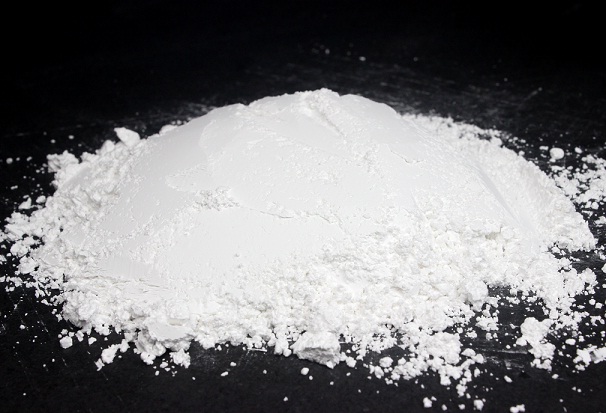
Agriculture has always been deeply rooted in the health of the soil. As farmers and agronomists strive for higher yields and sustainable practices, the role of natural minerals like calcium carbonate has gained increasing attention. Widely used for improving soil quality and optimizing crop production, calcium carbonate is both a cost-effective and environmentally friendly solution for managing agricultural land. In India, where agriculture plays a critical role in the economy, the demand for quality soil conditioners has surged, leading to the growth of the Calcium Carbonate Manufacturer in India sector.
Understanding Calcium Carbonate and Its Role in Soil
Calcium carbonate (CaCO₃) is a naturally occurring compound found in rocks such as limestone, marble, and chalk. In agriculture, it is primarily used to correct soil acidity and supply calcium, a vital plant nutrient. Acidic soils, which are common in many parts of India due to high rainfall and intensive farming, can hinder plant growth and nutrient absorption. By applying calcium carbonate, farmers can neutralize soil acidity, improving pH balance and enhancing the bioavailability of essential nutrients like nitrogen, phosphorus, and potassium.
Soil Acidity and Its Impact
Soil acidity is a common issue that negatively affects crop productivity. It reduces the microbial activity necessary for organic matter decomposition and nutrient cycling. Furthermore, acidic soils often lead to the solubilization of toxic elements such as aluminum and manganese, which can damage plant roots and restrict growth.
Calcium carbonate acts as a liming agent, reacting with hydrogen ions in the soil to raise the pH and create a more hospitable environment for plant roots and beneficial microbes. This, in turn, results in improved crop yields and better soil health.
Benefits of Calcium Carbonate in Agriculture
The benefits of using calcium carbonate in agriculture go far beyond pH correction. Here are some of the key advantages:
1. Improved Soil Structure
Calcium, a component of calcium carbonate, helps flocculate clay particles in the soil, which improves soil structure. Better soil structure leads to increased water infiltration and aeration, both of which are vital for healthy root systems.
2. Enhanced Nutrient Uptake
When soil pH is corrected, essential nutrients become more available to plants. This reduces the need for synthetic fertilizers, which can be both costly and environmentally damaging.
3. Cost-Effective and Sustainable
Compared to other soil amendments, calcium carbonate is relatively inexpensive and sustainable. It is readily available and can be applied using conventional farming equipment.
4. Reduction of Toxic Elements
Neutralizing soil acidity with calcium carbonate can significantly reduce the solubility of toxic metals like aluminum, making the soil safer for crops and reducing stress on plant systems.
Application Methods
Calcium carbonate is typically applied in powdered or granulated form and spread evenly over the field. The effectiveness of the treatment depends on several factors, including:
- Soil testing to determine pH levels and lime requirement
- Type of crop being cultivated
- Form and fineness of the calcium carbonate product
- Timing and method of application (e.g., pre-planting or during fallow periods)
The Role of Calcium Carbonate Manufacturers in India
With the rising awareness of sustainable farming and soil health, the demand for high-quality calcium carbonate has increased dramatically in India. As a result, the Calcium Carbonate Manufacturer in India sector has expanded to meet these needs. These manufacturers provide a range of products tailored for agricultural use, including:
- Agricultural lime
- Dolomitic lime (which also adds magnesium)
- Micronized calcium carbonate for foliar applications
Leading calcium carbonate manufacturers in India focus on quality control, consistency, and particle size optimization to ensure maximum effectiveness in agricultural settings. Many also offer technical support to farmers, including guidance on appropriate usage and soil testing.
Regional Relevance in India
Different regions in India have varying soil compositions and acidity levels. For instance:
- Northeastern states often have highly acidic soils due to heavy rainfall.
- Southern states, with intensive cultivation, frequently face soil degradation issues.
- Central and western regions benefit from calcium carbonate to manage the effects of fertilizer overuse.
By addressing these regional challenges, calcium carbonate application has become a strategic tool for maintaining long-term soil fertility and crop productivity.
Challenges and Considerations
While calcium carbonate is generally safe and effective, improper application can lead to imbalances. Over-liming can cause micronutrient deficiencies (like iron and zinc) and harm certain acid-loving crops. Therefore, it's essential to base its use on reliable soil testing and follow recommended guidelines.
Future Outlook
As the Indian agricultural sector continues to evolve, the emphasis on sustainable soil management practices will grow. Calcium carbonate will play a crucial role in this transition by promoting soil health, reducing dependence on chemical inputs, and supporting higher agricultural productivity. With innovation and investment from every Calcium Carbonate Manufacturer in India, farmers are better equipped to meet the challenges of modern agriculture.
Conclusion
Calcium carbonate is more than just a soil additive—it's a cornerstone of sustainable farming. Its ability to restore pH balance, improve soil structure, and boost nutrient uptake makes it invaluable to Indian agriculture. As awareness spreads and technology advances, the support from the Calcium Carbonate Manufacturer in India will ensure that this mineral continues to benefit farmers and the environment alike.






